(Our man BadWolf sat down with Jørgen Munkeby of Norway’s Shining during the band’s recent US tour and files this entertaining interview.)
Jørgen Munkeby likes to check his watch.
Or at least that was my impression of him after I saw him tear up the Pontiac Ballroom on April 10 with his band, Shining. The man needs to be punctual—his unique blend of industrial, jazz, black metal, and progressive rock requires crackerjack timing. But Munkeby is far from being a heartless calculator-headed shredder. Whether picking on his black Gibson SG or playing his saxophone, Munkeby is an electric frontman with a piercing voice.
On the tour bus, he’s a different man entirely. Slender and contemplative, Munkeby comes across as a scholar, albeit a scholar that penned my favorite album of 2010, Blackjazz, and its pile-driving successor, last year’s One One One. I brought my friend Josh, a fellow Shining enthusiast, to sit with Munkeby and me after his performance and unpack the inner workings of this young master’s mind.
***
You check your watch constantly during the show. Why?
We didn’t start on time today, but we usually start on time. I had to find the monitor guy. We actually start one minute early most days, just to make sure we’re not the one on the tour pushing the schedule. So, since he wasn’t there we lost three minutes. It’s not a big deal but he started signaling to the front-of-house guy about four minutes before our time was up. At that time I felt I just needed to watch the time, but I knew how much time we had left. Since he got stressed, I just wanted to check. It’s unnecessary.
It’s got to be difficult for you to play such a short set, considering, especially on Blackjazz, a lot of my favorite songs are quite long. “Exit Sun” is almost ten minutes!
Oh yeah. “21st Century Schizoid Man,” that song we didn’t play the first part of the tour because it takes up almost a third of the set. We’ve been around for quite some time and have a lot of songs to pick from. It’s not hard to play short. It’s ok to get in there, do enough so that people get a taste. It’s good to get the people who like it to want to buy some CD’s or whatever, and not make the people who don’t like it bored. I’d prefer forty, forty-five minutes. A set like that shows some kind of authority, shows that you have a history. Playing thirty-five minutes is cool, picking a thirty-five minute set list is not. For example, there are some times where we want some saxophone intros, for variation within the set. We have a lot of stuff that we think is important for making a full show varied enough, but this is too short.
I remember when your band won the Spellemann, as well as a monetary award in 2010. You’d said you would tour the US, but this is the first time you’ve played this part of the country.
Well, I said that we would like to go to the States, and some blogs or websites jumped on that. We wanted to come over, but it’s weird how the interest in the US was huge at that time, but somehow we ended up playing Europe more. It’s a big obstacle to cross over here, it’s expensive, it’s a big country. The media and the people kind of in the know, the hip people who follow foreign shit—the fact that they like something doesn’t mean that there’s a big enough audience to make it worthwhile for promoters to bring us over. Pitchfork can write rave reviews of things and it doesn’t necessarily translate into an audience, whereas some stuff that never gets written about can have a big audience.
We had a lot of great media coverage, but somehow a proper US tour never manifested, but we had more than enough to do in Europe. After a while we felt we should spend our energy and our money building where it was easiest, and it was working in Europe. Now, it seems like we’re past that point. We want an audience, We need an audience. A Pitchfork review doesn’t do all that much. You can’t buy bread with a Pitchfork review.
I don’t remember One One One getting the kind of media push that Blackjazz did, but I do remember hearing more people talking about Shining after One One One.
Yeah, I think that’s true, except Blackjazz didn’t get any push. Nobody pushed it, It just got a lot of attention. That was more word of mouth, viral stuff. People kept on spreading it. I saw new reviews two years after. I think something happened with that album. People felt it was something fresh and something new. I felt the same, I wanted to be that. With One One One we had a label where everything looked like it would be more push, but again, the amount of push and media coverage doesn’t always translate into people being interested. Like you’re saying, more people are discovering us now, even though the big media frenzy, in a way, didn’t happen on One One One. And in a way I’m not surprised because, while I love One One One, Blackjazz was something new, and that’s worth writing about.
I’m not worried about anything, it all goes the right direction. Ten years ago, everything was based on record cycles. You made an album, singles to push the album, and videos and tour, this and that, and when you’re done you have to make a new one with this and that amount of songs. In Norway, streaming services like Spotify have been big for, I want to say, three more years than in the US. That way of listening to music, and the influence that it’s had on the way people consume music has been huge. Now the pop labels—and I do mean pop—they don’t care about albums. They care about singles. Now there’s so many ways to do it. You can release a few songs here, a few songs here, and an EP. You can release two songs and have a huge tour. Skrillex released his first album a few weeks ago, and he’s been one of the biggest artists in the world, I guess, based on EPs and his live shows.
I personally feel like getting coverage around an album is not the only way of building a band. That’s why we decided to do this tour. It’s really expensive for us. Yes, we get good reviews—every time we release a new album, The New York Times reviews it—but we’ve never been here. But now we are, and we want to come back—we might have a short tour in September. Just keeping up touring and albums, keeping quality up… I’m happy with that.
When I first heard One One One I was taken aback. It seemed very different from Blackjazz in a lot of ways—the first comparative band that came to my mind was Motorhead. What went into the creative process behind these shorter, faster tracks?
What’s interesting is that when the album was about to come out, I spent more than a year making it. I knew all the songs and how they sounded. I thought people might think it was too similar to Blackjazz so that says something about how self-centered you can be. My view on things doesn’t necessarily match what other people think, and your view on those albums is more in touch with what other people think. Even though, if you put the two albums on and then listened to Bryan Adams or Rhianna, they would sound pretty similar. I’ve seen, based upon reviews, most people agree that there’s a pretty big difference.
I think that’s a good thing. Having watched the life cycle of bands, I think most people get bored if a band repeats itself too much.
I just did what inspired me, what I wanted to do at that time, which was making shorter songs and getting straight to the point. I wanted to make more, and I wound up writing only that kind of song, which is why it’s called One One One. If you want long songs, or soft songs, you can put on something else. If people want to make an album that has anything, they’re free to do so, but that was my mindset at the time. Now that I’ve done that, I’ve started writing for a new album, and it’s hard to tell how it’s going to be, because no matter what I think I want, when I start writing, something inside dictates what it’s going to be. The new stuff seems to be some more of the concise rock stuff and some of the more elaborate, improvised jazz stuff. It’ll be a little bit more varied, at least that’s how the four songs I have finished are. It has nothing to do with strategy. It’s just what I feel I want to do.
You have a relationship with Enslaved, a very popular ‘prog’ band. But I think of your band as truly progressive.
That’s a good distinction, because prog is obviously a very short-term version of progressive. I felt for a long time that what we call progressive metal doesn’t have anything to do with the true meaning of progressive. Calling it prog seems more like a name.
It’s a market signifier.
Yes exactly. Whereas progressive would mean that you shouldn’t look back to the sixties or seventies, you should move forward. Just like modernism. It’s weird calling an era of art modernism because it can’t be modern all the time. Another example, Nu-metal. Or in classical music, there’s a genre called contemporary. Well you can’t be contemporary all the time. In Norway there’s this thing called numusic, which is, again, painting itself into a corner.
In retrospect calling the album Blackjazz was probably very smart in that way.
[laughs] Well yes. I’m hoping that people will start to try and use the label.
I’m curious about the incest lyrics on Blackjazz—that’s an unusual theme for metal.
I never intended it to be about that. That’s from “Exit Sun.” I know where it comes from. I had a relationship with a crazy person.
We’ve all been there.
You don’t know when you’re there, but you feel it when it’s hard to get out. You lose your way step by step, and after a few years you’re totally lost.
Blackjazz did seem like a breakup album.
Oh, it was. It was me getting my shit together—not my own shit! [laughs] It was shit I was in, but I put myself in it. I’m responsible for it. That’s what it is.
Well that’s a thing I like. A refreshing thing about your band is that a lot of progressive music has these very heady, esoteric lyrics that I have no attachment to. Shining isn’t like that.
That’s great to hear, but I think there might be people that don’t feel it. But what is interesting, what I do agree with, is that we haven’t tried to over-intellectualize our music. We have some of it. I try to make music that is both cerebral and has raw emotion and energy. I don’t want it to be dumb.
I introduced my friend Josh here to Shining, and I remember him confusing the group with the Swedish suicide-based black metal band Shining.
Ah yes [slyly] and where did you get this suicide thing from, Josh?
Josh: Well, of course, the internet.
It’s got to be hard having two bands with the same name.
I’m not surprised that people get confused. It was something I worried about for a while. When we started there wasn’t much internet, so I didn’t worry then. But we played fucking jazz music then. But with Blackjazz we suddenly got a bump in our popularity and we were harder and darker in a way, so some people got a bit confused. I don’t worry about that anymore. It’s been interesting also, because I think the discussion has been good for both bands—it’s given people something to talk about. The abbreviated labels, the NOR at the end of everything, I’ve pushed everyone to do that, our labels and our booking agents, all the promoters and PR people. I want to make that distinction every time we do anything. I considered calling the new record Blackjazz One One One to make that distinction, because Blackjazz was almost the only unique name we had. Not just the other band, there’s the movie and book as well. Blackjazz was the only unique thing we had.
Have you ever considered touring with them?
I always say that would be interesting, but I’ve never really considered it. That would be more of a PR thing. We do have some common fans, but I think most of our fans are pretty different. I mean, let’s ask your friend: when you heard our music and then read the depressive suicide thing, did you think that suicide image could have been ours?
Josh: I did, initially, but the music between the two bands is very different. After I heard the other band it made more sense. I didn’t hear so much self-loathing.
Well on these albums especially I want it to be aggressive, and energetic, but I kind of want it to be uplifting energy. I want it to be the kind of energy that you use to fix the shit that you’re not happy with, not the other way around. […] I’m the kind of guy where the stuff around the music effects the way I listen to the music. For instance Burzum is something I’ve never ever wanted to listen to because I think the guy’s a fucking idiot. While other people think it’s important to separate the artist and the music, to me they’re one and the same. That’s why when I was young I didn’t want to listen to Slayer, because I remember the picture of the guy who cut the logo into his arm. I didn’t want to be part of that. And with Norwegian black metal there was too much shit outside of the music.
I grew up in a family where we weren’t Christian at all; my parents didn’t feel that religion should be part of society. When I heard about this fight against religion, I didn’t understand because to me religion wasn’t a problem. That’s why when I listen to new music I tend to go to YouTube first, so I can see the image, and see if these guys are acting like idiots. I embrace the new way of listening to music while still appreciating LPs and longer forms of music. For example, you can’t take out two minutes of a symphony—it has to be a whole thing.
For a minute there, I felt the same about Dillinger, because their live shows are so rowdy. Now, they’re one of my favorite bands, but people really get hurt at their shows!
Not so far on this tour, fortunately. Ever since Miss Machine came out they’ve been one of my favorite groups. I’m impressed by what they’ve built up. They have their own style of music and they haven’t compromised anything, and they’ve managed to build a huge fan base. They sound good, look good. I’m just a big fan.
Josh: I want to know about the origins of the King Crimson cover.
When you listened to our band, you didn’t immediately think that we were influenced by King Crimson, did you?
Josh: No.
Well I wouldn’t say that we are. I never listened to them that much when I was younger. What happened was: we were invited to play a radio show in Norway on a national broadcast. Each show was one band talking about another band they liked, and what we were supposed to do was to play a cover version of one of their songs. We had a few options, and our guitarist at that time suggested King Crimson. I had listened to In the Court of the Crimson King and a few of their other albums just as a musician trying to fill the holes in my history. I did like them, but I didn’t grow up with them. Still, I felt we could try that song.
We reworked the song a bit, because when people typically cover that song they focus on the part we took away: the faster part with the pentatonic scales, one of the parts I never really liked. I had my years focusing on scales and technique. I’ve studied jazz for fuckin’ ten years; I didn’t want to do that! So we re-worked it to a heavier version and played it on the radio. The first performance was filmed. It’s the same arrangement we use now, but less heavy. The sound is a bit more prog rock.
When we did the tour with Enslaved in Europe in 2008, we ended with that song. Enslaved are all very big King Crimson fans, so they joined in for that last song on the last couple days, which was fun. When we made the album we felt we should include it, just to give some kind of historic backdrop to the Blackjazz idea. That was more a part of making a concept album. We just asked Grutle of Enslaved to do that song, and he came down from Oslo to record it live in the studio. We spent quite some time trying to get it to sound as aggressive as possible. When we played it with a Fender Rhodes it felt just a little too bluesy, so we took that away and added a synthesizer. It’s been in our set as a closing song for almost every show.
The tongues of BadWolf and Munkeby
https://www.facebook.com/jorgenmunkeby
https://www.facebook.com/shiningnorway

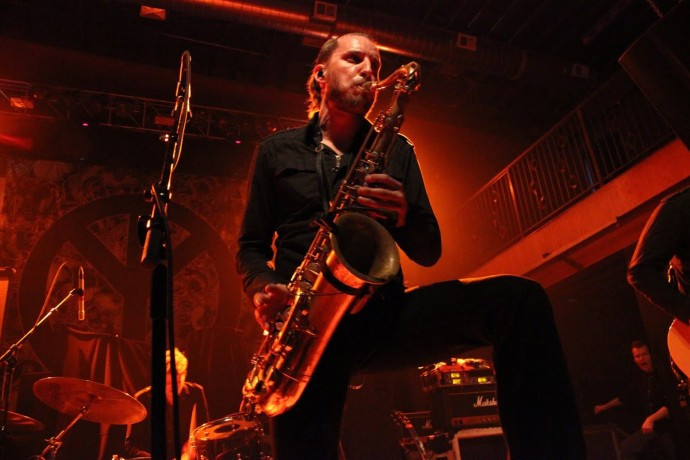
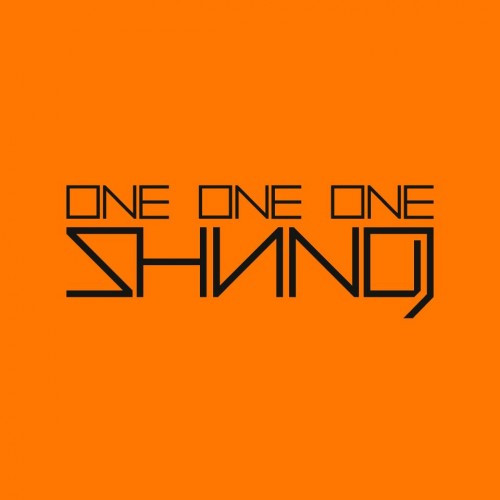
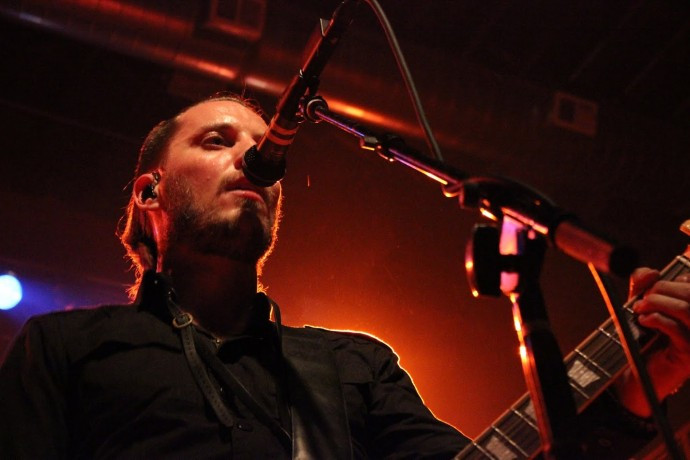
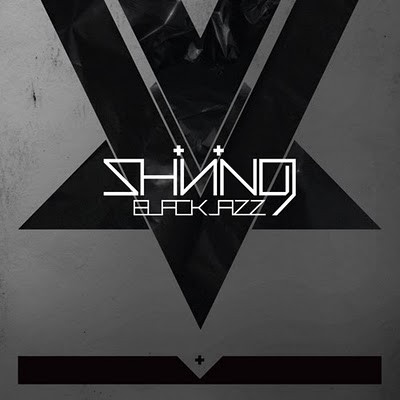
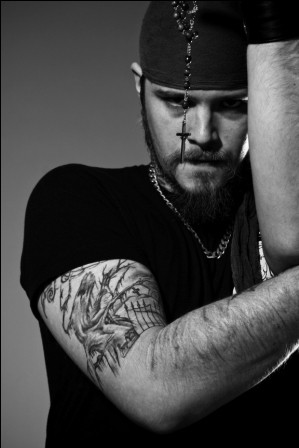
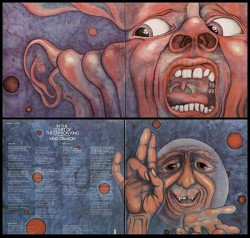

i’m not a huge fan but that was a great interview 🙂
^ I second this statement.
They were awesome down here in San Diego, though I admit Dillinger stole the night on account of having a typically fucknuts performance. It probably didn’t hurt that the place was packed for Dillinger, while it was still not entirely full when Shining started their set. And ending the set with that cover was perfect.